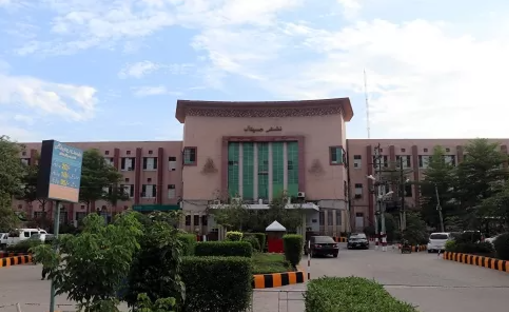Nishtar Hospital HIV Outbreak
An investigation team has alleged serious negligence by doctors and other staff of Nishtar Hospital, where dozens of kidney patients have been infected with HIV/AIDS, according to officials.
Serious Negligence Uncovered
The probe body was formed following reports that a patient suffering from kidney failure died, and 30 others contracted Human Immunodeficiency Virus (HIV)/Acquired Immunodeficiency Syndrome (AIDS) infections during dialysis treatment at the largest public sector hospital in South Punjab.
Confirmation of HIV Outbreak
The fact-finding committee constituted by the Punjab government has confirmed the outbreak of HIV/AIDS in the hospital’s nephrology unit. The committee comprised the Punjab Human Organ Transplantation Authority DG, the Punjab AIDS Control Programme project director, the head of nephrology from the Services Institute of Medical Sciences, and an official from the Specialized Healthcare and Medical Education Department.
Violations of Guidelines
The official reported that the Nishtar Hospital staff violated strict Standard Operating Procedures (SOPs). The staff did not follow these SOPs, which play a crucial role in pre- and post-dialysis assessment to ensure patient safety. The investigation identified serious negligence in sterilizing dialysis machines and ensuring they were safe for blood transfusions, leading to potential HIV transmission risks.
Lack of Proper Testing and Documentation
The institute had not properly performed tests on patients for dialysis over the past year. Additionally, healthcare providers did not document patients’ medical records according to standard guidelines to confirm that patients were not carrying infections before starting dialysis sessions. Infection control committees, essential for assessing infection prevention and control, had not convened for months at Nishtar Hospital.
Provincial Government Involvement
The investigation report has been submitted to the provincial government for further action. The official highlighted that the HIV/AIDS transmission at a tertiary care hospital has tarnished the country’s reputation. International health organizations have expressed serious concerns over the lack of adherence to standard patient safety guidelines.
VC Rejects Findings
The Nishtar Medical University (NMU) vice-chancellor, Prof Mehnaz Khakwani, has rejected the committee’s findings. Specifically, she suggested that private clinics where patients went for blood tests and screening could have infected them. Consequently, she ruled out the possibility of infection via dialysis machines at Nishtar Hospital. Furthermore, Prof Khakwani stated that the institute had collaborated with the AIDS Control Programme to review SOPs and prevent similar incidents in the future.
Attempts to Blame Juniors
There are reports that NMU’s top management and hospital administration are attempting to make junior residents and nurses scapegoats. In addition, allegations suggest that someone is pressuring the postgraduate residents and nursing staff of the nephrology department into accepting responsibility for the negligence and submitting written apologies. Furthermore, this move appears to be an effort to protect the head of the nephrology department and other senior medical staff of the university.
Government Response
Additionally, there are reports that Punjab Chief Minister Maryam Nawaz Sharif will visit Nishtar Hospital in connection with the incident. This visit may bring further scrutiny and potential policy changes to address the issues uncovered by the investigation.
Conclusion
The investigation into the HIV/AIDS outbreak at Nishtar Hospital has revealed significant violations of medical protocols and negligence by the hospital staff. The provincial government’s involvement and international concern highlight the gravity of the situation and the urgent need for corrective measures to ensure patient safety and restore trust in the healthcare system.




Thanks for sharing. I read many of your blog posts, cool, your blog is very good.
Thanks